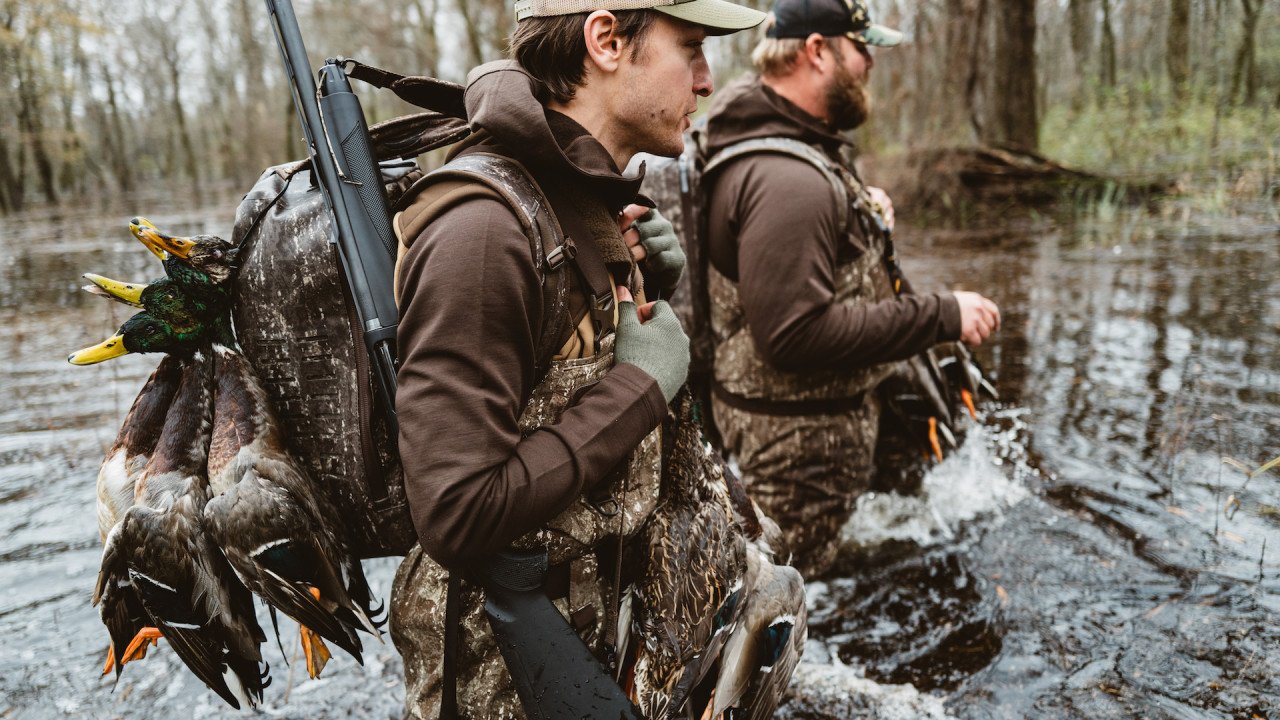How to Choose the Best Duck Calls for Your Hunting Needs

When it comes to duck hunting, a duck call is one of the most essential tools in your arsenal. It’s the perfect way to mimic the sounds of ducks and attract them to your hunting spot. However, with so many options available, choosing the best duck calls for your specific hunting needs can be overwhelming. Selecting the right call can significantly impact your success in the field. This guide will help you navigate the different types of duck calls and find the best duck call for your next hunt.
The Importance of a Duck Call in Hunting
A duck call serves as your primary tool for communicating with ducks in the field. Ducks are highly vocal, using a variety of sounds to communicate with each other. A well-made duck call allows hunters to replicate these sounds, attracting ducks toward their decoys. Whether you’re trying to entice ducks to come closer, signal a specific call, or mimic feeding behavior, the right duck call can make a significant difference in your hunting success.
The best duck calls can replicate a variety of duck sounds, making them versatile tools for all types of hunting conditions. A hunter who masters the art of calling will have a much better chance of drawing in ducks, resulting in more successful hunts.
Understanding the Different Types of Duck Calls
When selecting the best duck calls for your hunting needs, it’s important to understand the different types available. Each type of duck call is designed to mimic certain sounds, and selecting the right one depends on your hunting environment, skill level, and the species of ducks you’re targeting.
Single-Reed Duck Calls
Single-reed duck calls are typically the most popular option for hunters. These calls are easy to blow, making them a great choice for beginners. They produce a natural, softer sound and allow for a wide range of calls, such as quacking, feeding, and calling for hens.
For those just starting out, a single-reed duck call might be the best duck call to choose. They’re forgiving and versatile, allowing hunters to make realistic duck sounds with minimal effort.
Double-Reed Duck Calls
Double-reed calls are favored by more advanced hunters due to their ability to produce a deeper, more resonant tone. These calls are louder and more durable, making them an ideal choice for situations when you need to reach ducks that are farther away or for hunting in windy conditions. Double-reed calls allow for more control over sound pitch and volume, which is crucial when you’re trying to replicate more complex duck calls.
If you’re an experienced hunter looking for more variety in your duck calls, a double-reed duck call might be the best duck call for you. The extra reed offers greater control over the sound and allows for a wider range of calls, from soft quacks to louder calls to attract distant ducks.
Electronic Duck Calls
Electronic duck calls have become increasingly popular, offering convenience and ease of use. These calls use batteries to produce a variety of pre-recorded duck sounds at the push of a button. While some hunters prefer the traditional reed calls, electronic calls are a great option for beginners or those looking for consistency in their calling.
An electronic duck call is one of the most straightforward options for hunters who want a reliable, hassle-free calling experience. For those who may struggle to master the reed or need to switch between multiple calls quickly, an electronic call could be the best duck call.
Specialized Duck Calls
In addition to general duck calls, there are also specialized calls designed for specific duck species, such as mallards, wood ducks, and teal. Each type of duck has its own distinct vocalizations, and a specialized call can help you mimic those sounds more effectively.
If you’re targeting a specific type of duck, such as mallards or wood ducks, investing in a specialized call designed for that species can increase your chances of attracting them. Understanding the unique sounds of the ducks you’re hunting and selecting the right duck call is key to improving your hunting success.
Key Factors to Consider When Choosing the Best Duck Calls
Now that you’re familiar with the different types of duck calls, let’s explore the key factors you should consider when choosing the best duck call for your needs.
Sound Quality and Realism
The primary purpose of a duck call is to replicate the sounds of ducks, so sound quality is the most important factor to consider. The best duck calls produce realistic, clear, and natural duck sounds that will attract ducks effectively. Whether you’re calling to ducks from far away or coaxing them in closer, the realism of the sound matters.
Ensure that the duck call you choose can produce a wide range of tones, including quacks, whistles, and feeding calls. A versatile call that accurately mimics the various sounds of ducks is crucial for success in the field.
Material and Durability
Durability is an important consideration when selecting duck calls, especially since hunting conditions can be harsh. Calls made from high-quality materials such as acrylic, polycarbonate, or durable wood are more likely to withstand exposure to water, dirt, and extreme temperatures. Acrylic calls, for example, are known for their durability and clarity, while wood calls offer a more traditional, rich tone.
Choose a duck call made from sturdy materials that will endure the rigors of regular use and the elements. You want a call that will stand the test of time, even when exposed to challenging hunting conditions.
Ease of Use
Another important factor to consider is how easy the duck call is to use. If you’re new to duck hunting, it’s best to choose a call that is user-friendly and doesn’t require a lot of practice to get the hang of. Single-reed calls are often the easiest to blow and offer great versatility, making them ideal for beginners.
However, if you’re an experienced hunter, you may prefer a more advanced call, such as a double-reed or specialized call, that allows for greater control over tone and pitch. The best duck calls for you will be those that match your skill level and calling technique.
Size and Comfort
Size matters when it comes to comfort and control. A duck call that is too large or too small can be difficult to handle during a hunt. Look for a call that fits comfortably in your hand and feels natural to use. Additionally, the mouthpiece should be comfortable and easy to manipulate, especially if you’re using it for extended periods of time.
Testing and Practicing Your Duck Calls
Once you’ve selected the best duck call, it’s essential to test and practice regularly. Even if you choose a high-quality duck call, you’ll need practice to master the techniques necessary to use it effectively. Start by learning the basic quack, feed call, and other basic sounds that ducks make. As you gain confidence and improve your skills, you’ll be able to create more complex and varied calls.
Regular practice ensures that you’re able to respond quickly when you need to call ducks, increasing your chances of attracting them successfully during a hunt.
Conclusion
Choosing the best duck calls for your hunting needs is an important decision that can greatly impact your success in the field. By understanding the different types of calls, considering key features such as sound quality and durability, and practicing regularly, you can increase your chances of attracting more ducks and having a successful hunt. Whether you’re a beginner or an experienced hunter, the right duck call will help you communicate with ducks and improve your hunting experience. Take the time to find the call that works best for you, and get ready for a more rewarding duck hunting adventure.






